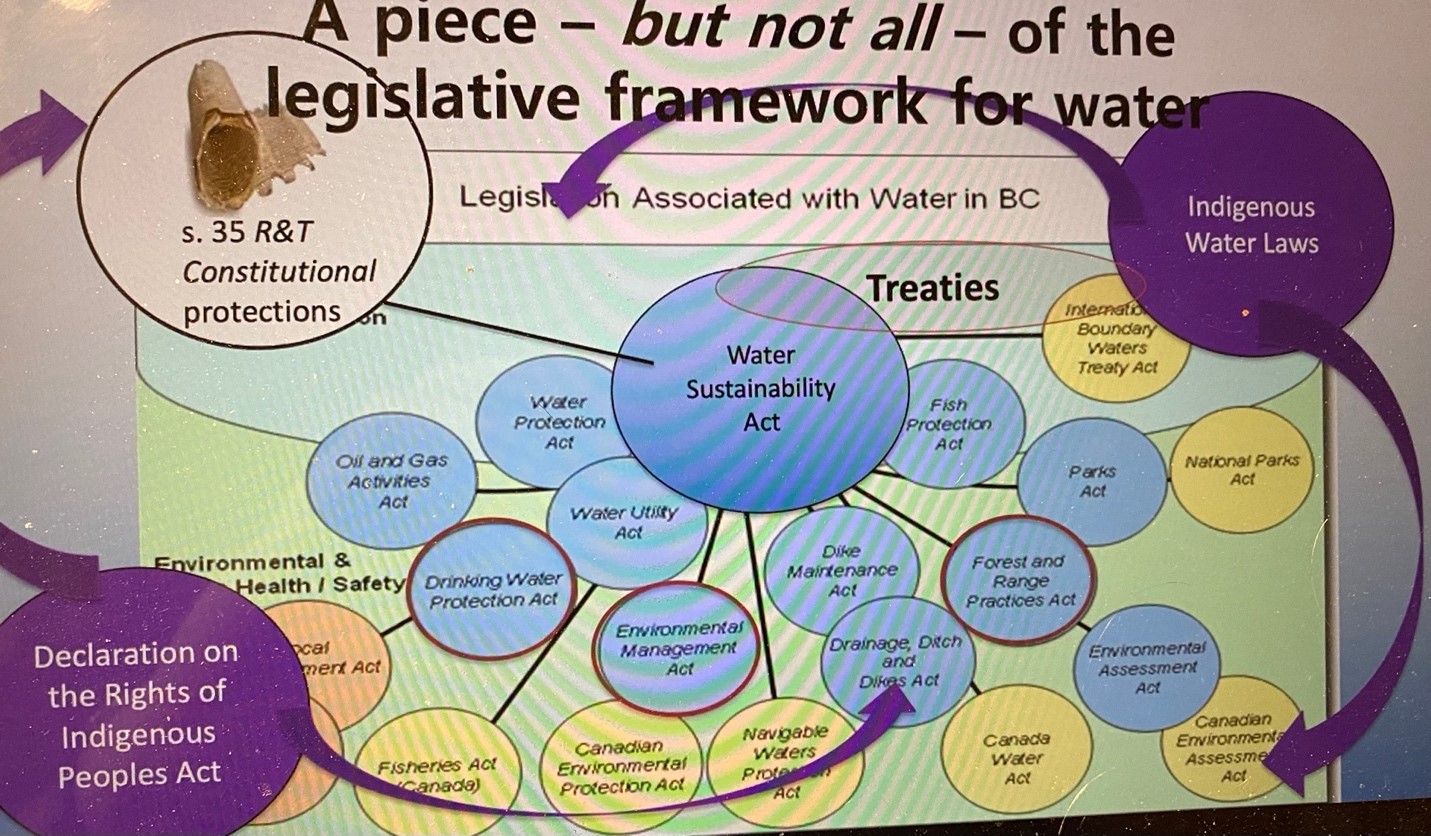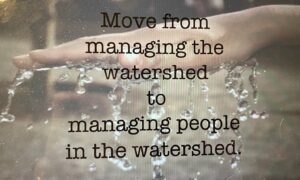
Oliver Brandes, BA(H), DipRNS, M.Econ, JD Associate Director of Strategic Partnerships and Public Policy POLIS Project; University of Victoria’s Centre for Global Studies
Our speaker on February 4 was Oliver Brandes, speaking about “The Future of Water Law and Policy”.
What do you get when you cross an economist with a lawyer-by-training and a trans-disciplinarian by design? The answer: a Co-Director of the POLIS Project on Ecological Governance, based at the University of Victoria’s Centre for Global Studies. Oliver is an advocate with a strong passion for and expertise in Water Sustainability issues. This complicated and ever-changing issue was shared with us in a very understandable and in many cases commonsensical way. Just like land, they are not making any more water. This country once had an abundance of water that we thought was inexhaustible. However the growing concentrated demands of urban living, energy and resource projects, industrialized agriculture combined with increasing water pollution, disrupted natural water flows and major climate changes are putting the spotlight on water sustainability for humans. BC watersheds are seriously under pressure.
 Old water policy was: “enough water to drink and enough water for fish to live”. Now in our fast-paced, modern world with conflicting water demands, we need to deal with sustainability by watershed governance. Indigenous water laws and Rights of Indigenous Peoples have led to multiple partnerships and co-governance with Indigenous Peoples. Everyone in a watershed can play a part – civil society, First Nations, business and industry, community. The UN Declaration on the Rights of Indigenous Peoples (UNDRIP) has been accepted by BC, and requires us to take all measures necessary to ensure BC laws are consistent with UNDRIP.
Old water policy was: “enough water to drink and enough water for fish to live”. Now in our fast-paced, modern world with conflicting water demands, we need to deal with sustainability by watershed governance. Indigenous water laws and Rights of Indigenous Peoples have led to multiple partnerships and co-governance with Indigenous Peoples. Everyone in a watershed can play a part – civil society, First Nations, business and industry, community. The UN Declaration on the Rights of Indigenous Peoples (UNDRIP) has been accepted by BC, and requires us to take all measures necessary to ensure BC laws are consistent with UNDRIP.
BC has a new Water Sustainability Act – a realization of a new water reality and increasing expectations for tomorrow. This slide shows the legislative framework for sustainability.

In summary, the times they are a changing. Our Water Sustainability Act is now in force, but it is only the beginning. Regulations Phase 1 is complete but much more is needed. The waters we have now will continue to be depleted due to increasing demand usage and climate change unless we change. We must work together with co-governance with all parties and regulations must continue to make it clear how water laws are to be interpreted and applied. Our future of the goal of water sustainability depends on it.
 Note:
Note:
The summary and illustrations are relevant specifically to just the Feb 4th, 2022 presentation to the Northwest Bay Probus Club. Issues related to this subject evolve; water law discussions are to be taken in context, based on ongoing research.”
References:
If you would like more information, Oliver draws your attention to this guide/resource for the current review process underway by government related to this talk: https://poliswaterproject.org/polis-research-publication/making-collective-splash/
The general POLIS website has numerous interesting articles and reports at: https://poliswaterproject.org
You can also sign up for the POLIS Quarterly Newsletter at this link: https://poliswaterproject.org/newsletter-archive/
Finally, Robert Grose draws your attention to the following link he received from Anna Kemp at the “Watershed Watch Salmon Society.” The link is: https://watershedwatch.ca/ As the name suggests, it is quite specific to the challenges facing salmon.


